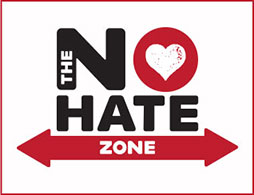Microaggressions
While working for the city of Portland and serving as a Human Rights Commissioner, I became aware of a term called “microaggressions.” In short, microaggressions are the everyday comments or questions that we make or ask of people from diverse cultures. For example: Asking an Asian person “So what language do you speak Japanese, Chinese?” or saying to a Jewish person, “You don’t look Jewish,” which I hear all the time.
On the surface, these questions and comments may seem harmless or unintended to cause pain, but over a period of time especially for a person of color they can have a lasting effect. The videos below are a great explanation of how these build up into a great deal of frustration over time.
Understanding Microaggressions
How a seemingly small comment can cause frustration, sadness and anger
Diffusing Microaggressions
Methods for diffusing Microaggressions encourage communication rather than confrontation. Please check out the PDF document here developed by Barbara Diamond. You can see a sample in the chart below of how this document approaches the subject.
MICRO-AGRESSION EXAMPLE
Alien in One’s Own Land
To a Latino American: “Where are you from?”
Ascription of Intelligence
To an Asian person, “You’re all good in math, can you help me with this problem?”
Color Blindness
“I don’t believe in race.”
INTERVENTION EXAMPLE
“I’m just curious. What makes you ask that?”
“I heard you say that all Asians are good in math. What makes you believe that?”
“So, what do you believe in? Can you elaborate?”
COMMUNICATION APPROACH
INQUIRE
Ask the speaker to elaborate. This will give you more information about where s/he is coming from, and may also help the speaker to become aware of what s/he is saying.
KEY PHRASES
“Say more about that.”
“Can you elaborate on your point?”
“It sounds like you have a strong opinion about this. Tell me why.”
“What is it about this that concerns you the most?”

